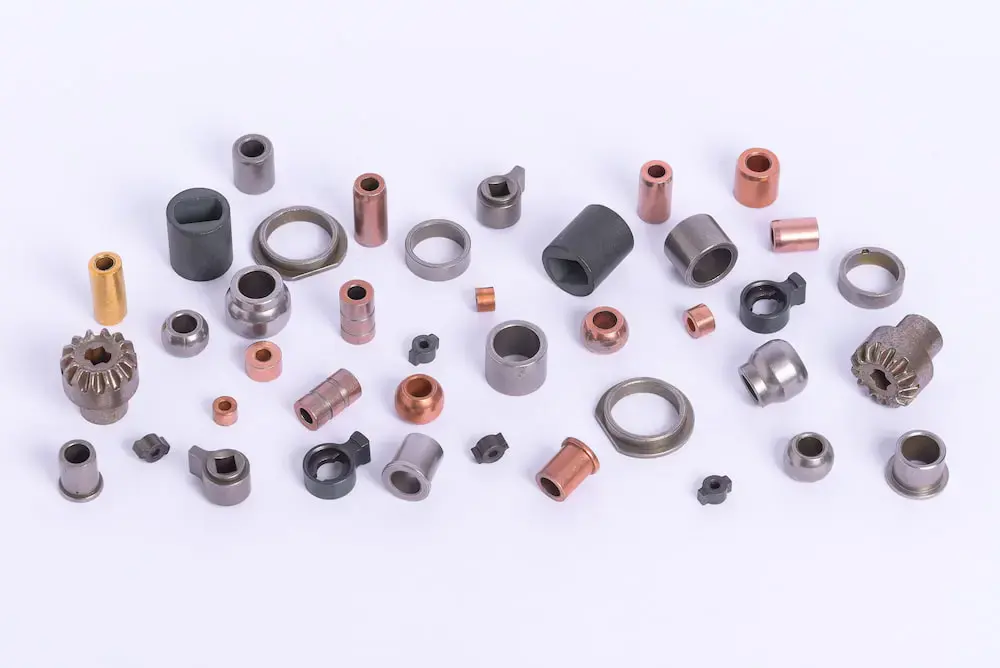Introduction
Iron and its alloys have long been the foundation of modern industries. Today, global procurement managers and wholesale buyers face a more complex landscape: choosing the right type of iron metal can directly impact manufacturing costs, project durability, and long-term profitability. Understanding the properties, applications, and procurement considerations of various iron metals is no longer optional—it is strategic.
At YISHANG, we bring over 26 years of OEM/ODM manufacturing experience and have served clients in over 50 countries, including key sectors such as automotive, construction, and renewable energy. This guide is crafted to help wholesale buyers and procurement professionals navigate the essential differences between iron types and make data-driven purchasing decisions that optimize project outcomes.
This guide covers the different types of iron metals, their properties, and typical uses—helping buyers compare pure iron vs cast iron vs wrought iron for optimal sourcing decisions.
Understanding Iron Metal Fundamentals
Iron (Fe) remains one of Earth’s most abundant elements, vital to sectors from automotive manufacturing to infrastructure. Extracted from ores such as hematite and magnetite, iron is processed using smelting and alloying techniques to meet diverse industrial needs.
While pure iron is rarely used structurally due to its softness and high reactivity, the right combination of elements transforms iron into high-performance materials such as cast iron, stainless steel, and carbon steel.In industrial contexts, understanding the types of iron and their properties—including strength, corrosion resistance, and magnetic behavior—can directly influence procurement strategy.
| Property | Value |
|---|---|
| Atomic Number | 26 |
| Melting Point | 1538°C |
| Density | 7.87 g/cm3 |
| Common Applications | Construction, Automotive, Machinery |
Industry Insight:
According to Grand View Research, the global iron and steel market size is projected to reach $1.01 trillion by 2030, driven by infrastructure development and renewable energy sectors.
Additional Market Insight:
MarketsandMarkets projects that the ductile iron pipes market alone will grow at a CAGR of 5.4% through 2028, fueled by urban infrastructure expansion worldwide.
Different Types of Iron Metals and Their Uses
1. Pure Iron
Pure iron, nearly devoid of carbon and impurities, offers high ductility, excellent magnetic properties, and superior electrical conductivity.Among all types of iron, pure iron is the softest but offers exceptional magnetic permeability and corrosion resistance in certain conditions.
Typical Bulk Applications:
Transformer cores and electromagnetic devices (ASTM A848 compliant)
Scientific instruments requiring minimal magnetic hysteresis
Procurement Tip:
When sourcing pure iron for electromagnetic applications, prioritize suppliers providing magnetic permeability certificates to ensure system efficiency. Selecting pure iron from certified suppliers reduces the risk of magnetic losses in high-precision industries.
2. Pig Iron
Pig iron, containing 3.5-4.5% carbon with silicon and manganese, is a foundational material for cast iron and steel production.
Typical Bulk Applications:
Feedstock for alloyed cast iron
Intermediate material for cast iron casting processes
Procurement Tip:
Ensure your pig iron orders specify carbon content and trace element levels suitable for downstream fabrication and alloy consistency.
3. Wrought Iron
Wrought iron, recognized for its low carbon content (0.02-0.08%) and slag inclusions, remains ideal for corrosion-resistant and ornamental applications.
Typical Bulk Applications:
Heritage restoration projects
High-end decorative fencing and gates
Procurement Tip:
Request microstructural analysis for authenticity confirmation when procuring wrought iron for projects requiring historical accuracy.
4. Cast Iron
Cast iron, defined by carbon content above 2%, excels in compressive strength, wear resistance, and cost-effective manufacturing.
Buyers often compare cast iron vs steel strength when selecting materials for high-load applications, as cast iron excels in compressive strength while steel offers better tensile performance.
Key Subtypes for Procurement:
Gray Iron: Superior vibration damping (engine housings)
White Iron: Extreme abrasion resistance (mining equipment)
Ductile Iron: High impact tolerance (municipal pipes)
Malleable Iron: Flexible under stress (mechanical fittings)
| Subtype | Strength | Ideal For |
| Gray Iron | Machinability | Automotive castings |
| White Iron | Wear resistance | Crushers, mills |
| Ductile Iron | Durability | Water infrastructure |
| Malleable Iron | Flexibility | Connectors, clamps |
Procurement Tip:
Always obtain a detailed cast iron chemical composition certificate to ensure product suitability for structural or mechanical applications.
5. Stainless Steel
Stainless steel, an alloy of iron and carbon enriched with chromium, provides excellent corrosion resistance and aesthetic appeal.
Typical Bulk Applications:
Food processing and pharmaceutical equipment (304 stainless steel)
Marine structures requiring anti-corrosion performance (316 stainless steel)
Medical and surgical tools
Procurement Tip:
Prioritize 316 stainless steel for environments with chloride exposure. Confirm compliance with ASTM A240 specifications to ensure material longevity.
6. Carbon Steel
Carbon steel combines iron with varying carbon levels, categorized into low, medium, and high carbon grades.
Typical Bulk Applications:
Low carbon steel: Building frames, pipelines
Medium carbon steel: Gears, axles
High carbon steel: Cutting tools, springs
| Carbon Grade | Strength Focus | Application |
| Low | Formability | Construction, pipelines |
| Medium | Strength | Automotive parts |
| High | Hardness | Industrial cutting tools |
Procurement Tip:
Confirm sourcing under SAE J403 or equivalent standards to maintain material consistency and compliance.
7. Alloy Steel
Alloy steels incorporate elements like chromium, nickel, and molybdenum to elevate mechanical and chemical performance.
Typical Bulk Applications:
Aerospace structures
High-pressure pipelines
Heavy machinery components
Procurement Tip:
For critical-load applications, request material certifications adhering to ASTM A182 to guarantee alloy performance reliability.
8. Tool Steel
Tool steels, designed for extreme stress and wear conditions, support efficient manufacturing processes.
Typical Bulk Applications:
Cold forming dies (D2 steel)
High-temperature forging dies (H13 steel)
High-speed machining tools (M2 steel)
Procurement Tip:
Demand heat-treatment verification documentation for each batch to ensure optimal tool life and performance.

Comparative Analysis: Which Type of Iron Is Strongest for Your Application?
| Requirement | Recommended Iron Type | Common Industry Usage |
| Maximum Corrosion Resistance | Stainless Steel | Marine, Food Processing |
| Highest Compressive Strength | Cast Iron | Heavy Equipment, Construction |
| Best Ductility & Formability | Wrought Iron | Restoration, Artisanal Fabrication |
| Superior Magnetic Properties | Pure Iron | Electrical Equipment |
| Extreme Wear Resistance | Tool Steel | Automotive, Aerospace |
| Budget-Friendly Structural Use | Carbon Steel | Construction, Manufacturing |
Procurement Strategy Tip:
Choosing the right iron metal impacts lifecycle costs and operational efficiency—consider certifications, delivery timelines, and supplier expertise when finalizing bulk orders.
FAQs: Quick Answers for Wholesale Buyers
Is cast iron stronger than steel?
Cast iron offers superior compressive strength, while steel provides better tensile strength and ductility for dynamic applications.
What is the typical carbon content in cast iron?
The cast iron composition percentage typically ranges from 2% to 4%, influencing hardness and brittleness.
What factors influence cast iron cost?
Material purity, production processes, cast iron foundry marks identification, and finishing treatments all impact pricing.
What is the melting temperature of cast iron?
The melting temp of cast iron falls between 1150°C and 1200°C—lower than pure iron due to higher carbon content.
Is galvanized iron metal a viable alternative to stainless steel?
While galvanized iron offers short-term corrosion resistance at a lower cost, stainless steel remains superior for long-term exposure.
What are the main types of iron alloys?
Common iron alloys include stainless steel, carbon steel, alloy steel, and tool steel—each offering unique combinations of strength, corrosion resistance, and machinability.
Which iron type is strongest overall?
High-carbon steels and certain alloy steels offer the highest tensile strength, while white cast iron leads in wear resistance.
Conclusion
Selecting the optimal type of iron metal ensures not only immediate material compatibility but also long-term value, supply chain efficiency, and structural reliability. Wholesale buyers must assess project-specific needs, material standards compliance, and supplier credentials to achieve strategic procurement success.
At YISHANG, we leverage our ISO 9001-certified production systems, a proven 99.8% on-time delivery record, and 26+ years of global export experience to deliver high-quality iron metals tailored to your project requirements. Let us help streamline your sourcing and support your operational excellence.
Contact YISHANG today to discuss customized sourcing solutions and secure high-performance iron metal materials for your next large-scale project.

